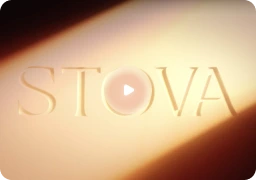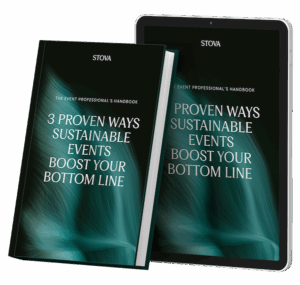Exploring IMEX America’s Show Themes: Experiential Events Q&A with Natasha Miller
August 21, 2019
IMEX America has released its show themes for the upcoming exhibition in September 2019, which allow attendees to explore more deeply a particularly important industry trend. This year, the annual session talking points will center on four themes: imagination, experiential, wellness, CSR and sustainability, and event tech.
We sat down with Natasha Miller, president and chief experience designer of Entire Productions, an experiential event and entertainment company, to learn more about IMEX America experiential theme and about Miller’s session, “Experiential Marketing Events”. Check out the Q&A with Miller to learn what this IMEX theme means for you.
IMEX America Experiential Marketing Event Q&A with Natasha Miller
Q: Can you tell our audience a little about yourself? About your experience with experiential events?
I have had Entire Productions for almost 19 years and for the good part of the first 15 years, we were working as an entertainment production company, placing entertainment into special events. In the last few years, we’ve been designing, programming, and producing experiential marketing events. In other words, we aren’t planning conferences, meetings, or trade shows. At Entire Productions, we mostly plan things with the experiential design and entertainment element.
As far as experiential marketing events, these days advertising dollars are going to experiential marketing events, either rather than or in addition to their media buys for magazines, billboards, digital ads, etc. Since the launch of AAA’s Gig Car Share three years ago, which I will talk more about at my IMEX America “Experiential Marketing Events” session, we’ve been doing quite a few experiential marketing events for brands and services to either launch their product, bring product awareness, or celebrate brands.
Q: As you know, one of IMEX America’s themes this year is Experiential. How do you define experiential events and more specifically, experiential event marketing, specifically in the meeting and event industry?
In special events, if a brand, a product, or if a company holds a special event to thank their clients or to thank their internal team that is a whole different thing, it has to do with their culture, their products, and their success. But the experiential marketing events gets a brand’s target demographic involved personally and tactically. With experiential marketing events, people from that targeted audience can touch, feel, smell, taste, and enjoy the experience of the company’s product in person. Then word of mouth from experiential marketing events, both organic, where you would call your friend and tell them about a product, and social media share is just a great surge. So, the difference between the experiential marketing event and the special event is the interaction with the brand and the product, specifically for the case of marketing it and selling it.
Q: Why do you think experiential events and immersive activities are so important in the meeting and event industry?
Since experiential marketing events are now part of the integrated marketing plan for companies, it’s added another opportunity for event planners to do more business. Experiential marketing events are a great addition to our world. As meeting and event planners, we were used to doing meetings, trade shows, special events, and parties, and now we have this added vertical that has become more prevalent within the last few years.
As most people know, the economy of the last 10 years has been the service economy. But now service isn’t enough. It is just a given in events and it just has to happen. And now the experiential element is much more important, and I think it’s injected a huge amount of money, movement, and creativity in our event industry.
Q: How can planners incorporate experiential technology or experiential activities into their next meeting or event? What are the benefits of doing so?
To host experiential events, you can’t just plan and design good events. Experiential events require planners to understand the psychology of advertising, branding, and marketing. If you don’t understand that, but your client does then you can work hand-in-hand with them. For Entire Productions, I come from an advertising, media buying, and marketing background. I had no idea that it was really going to come into such great use in the last few years. But I understand my client’s objectives, not only do I understand them, but I actually help to inform them of other opportunities. So sometimes I’m informing the CEO, the project manager, or the ad agency. So as the experiential event planner you really become a partner. If you’re an event planner or event designer producer and you’re interested in experiential marketing events, you really should study advertising, marketing, and branding so that you can give your client more than they expected.
Q: How can planners use technology to market their experiential events? Can you provide three specific top technology examples for our audience?
At our largest experiential marketing event, AAA’s GIG Car Share, we used technology to help call attention to the many different stunts and activities that we did to market this new brand. We had a GoPro in each Toyota Prius C vehicle that was being leased by GIG for their car-sharing service to film the musicians. They would be playing in the cars with the windows down for everyone to see, but we also live-streamed everything and shared it on social media. This allowed more people to see these crazy decorated cars with musicians hanging out of them, playing their instruments.
We also took all this footage and created a great marketing video for AAA that they could then share on their social media accounts or website. So filming and social media I’d say are both very, very important for experiential marketing events because they help capture and share the impressiveness of the event.
Q: Can you give our audience a little overview of your IMEX America session, “Experiential Marketing Events”? What do you hope attendees will learn/ what are the key takeaways?
There are three main takeaways that I listed on IMEX America’s website: The importance of finding the right venue and managing the logistics of the event space; Best practices for vendor selections and communications, with special focus on setting a working timeline and defining boundaries; How to manage all of the moving pieces from ideation through to execution.
But really, I want to get into the nitty-gritty of understanding what elements really go into making an experiential marketing event work for the client. So yes, it’s an event, and most people that are attending this talk will have produced many events and they can produce an event in their sleep. But experiential marketing events are more about understanding marketing and branding and marrying those ideas with the client’s objectives.
I’m excited about my session because I’m not only going to be presenting on my own experiential marketing event experiences, but I’m also going to be talking about case studies from a couple of other really great experiential marketing companies. So, I’ll be sharing more than just my own knowledge.
Whether your event is virtual, hybrid, or in-person, enhance your attendee’s journey with an event ecosystem built for your audience. Ready to walk through Stova's event technology solutions? Schedule some time with us today.


